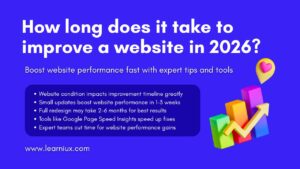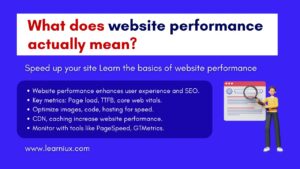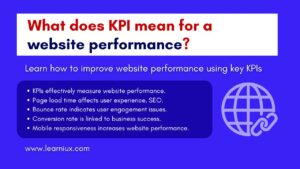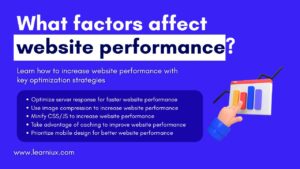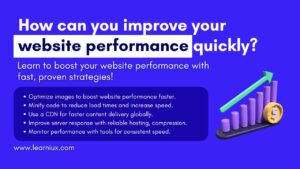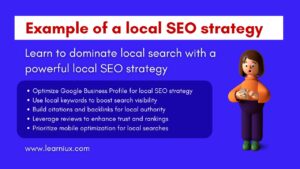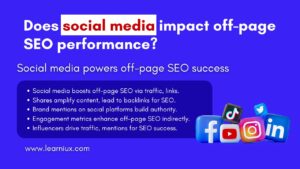In today’s digital landscape, businesses strive to improve their online visibility to reach a wider audience. Search engine optimization is a cornerstone of this effort, helping websites rank higher on search engines like Bing. At the same time, social media has emerged as a powerful tool to connect with audiences to build brand awareness and drive traffic. Many marketers wonder how these two strategies intersect, especially when optimizing for Bing, which has a different algorithm than its competitors. Understanding the relationship between social media and SEO on Bing can open up new opportunities for businesses looking to grow their online presence. This article explores the various ways in which social media impacts SEO efforts on Bing, offering practical insights and strategies for effectively aligning these efforts.
Social media platforms have changed how businesses connect with their audiences. Platforms like LinkedIn, Instagram, and others provide a place for users to interact and build communities. These interactions generate social signals such as likes, shares, comments, and follows that indicate the popularity and relevance of the content. Bing, like some other search engines, explicitly considers social signals as part of its ranking algorithm. When content is widely shared or receives significant engagement, it signals to Bing that the content is valuable and trustworthy. This can indirectly increase the credibility and authority of a website in the eyes of Bing, which can lead to improved rankings. For example, a widely shared blog post on X, which has numerous retweets and comments, may be considered more relevant by Bing than content with less social interaction.
The most direct way social media can impact SEO beyond social signals is by increasing traffic to a website. Social media posts with compelling calls-to-action can encourage users to visit your site, which can increase click-through rates. Bing tracks user behavior metrics such as click-through rate and time spent on page, known as dwell time, to assess the relevance and quality of a site. When social media drives consistent traffic to your website, it signals to Bing that your content resonates with users. This increased traffic can improve your site’s authority over time and contribute to higher rankings. For example, a well-crafted Instagram post that links to a product page can attract targeted visitors who spend time exploring your site and positively influence Bing’s perception of the value of your content.
Creating high-quality, shareable content is a key strategy for using social media to boost Bing SEO. Whether it’s an informative blog post, a compelling video, or a visually appealing infographic, content that your audience enjoys is more likely to be shared across all platforms. When other websites or blogs reference your content, these shares can lead to organic backlinks. Bing places a significant emphasis on backlinks that come from reputable sources because they demonstrate credibility and authority. For example, a viral video shared on LinkedIn that links to your website can be picked up by industry blogs, resulting in valuable backlinks. You can increase your site’s SEO performance on Bing by focusing on creating content that matches your audience’s interests and encourages sharing.
Building brand authority is another important way to support social media SEO efforts. A strong, consistent presence on social platforms establishes your brand as a trusted and knowledgeable player in your industry. Posting valuable content by responding to comments and interacting with followers on a regular basis builds trust and credibility. Bing’s algorithms favor brands with an active online presence because this activity indicates that the brand is relevant and engaged with its audience. For example, a business that consistently shares expert insights on X and interacts with its followers is likely to be viewed as more authoritative than a competitor with an inactive social media profile. This perceived authority can translate into better rankings on Bing, as the search engine favors trusted sources.
Social media can play a key role in boosting local SEO on Bing for businesses that target a local audience. Platforms like X allow businesses to engage with local communities through location-based hashtag event promotions and interactions with nearby users. Posting about local events or sharing content tailored to a specific geographic area can increase your visibility in Bing’s local search results. For example, a restaurant posting about a community event on Instagram with a relevant local hashtag can attract local followers who may visit the website or leave reviews. Bing considers factors like local engagement and reviews when ranking businesses in local search results, making social media a valuable tool for improving local SEO performance.
User engagement is another area where social media directly impacts SEO results. Metrics like comments, shares, and likes reflect how users interact with your content on social platforms. Bing takes these engagement signals into account when determining the relevance of content. High engagement indicates that users find your content valuable, which can lead to better rankings. Additionally, when users click through to your website from social media and spend time exploring your pages, it increases dwell time, a key metric for Bing. Encouraging discussions through interactive content like thought-provoking posts or polls can increase engagement. For example, a LinkedIn post asking followers to share their thoughts on industry trends can start conversations that lead to more clicks and longer site visits, which benefits SEO.
Businesses should adopt several best practices to maximize the impact of social media on Bing SEO. Optimizing social media profiles is an important first step. X Make sure your profiles on platforms like LinkedIn and Instagram are complete with accurate business information, including your website URL and relevant keywords. A well-optimized profile makes it easier for Bing to index your social presence and link it to your website. For example, including industry-specific keywords in your X bio can align your profile with search queries on Bing and improve discoverability. Additionally, linking back to your website from your profile gives users and search engines a clear way to connect your social activities to your site.
Consistency is equally important in posting. Sharing content regularly keeps your audience engaged and lets Bing know that your brand is active and relevant. A content calendar can help you plan posts across multiple platforms to ensure a consistent flow of updates. For example, scheduling a weekly post on X about industry trends or company updates can keep your audience engaged and drive consistent traffic to your site. Consistency also helps build a loyal following that can increase your social signals over time. By maintaining an active presence, you increase the likelihood that Bing will recognize your brand as a trusted source.
Incorporating visuals and multimedia into your social media strategy can further boost SEO results. Visual content like images, videos, and infographics attract more engagement than text-only posts. Bing’s algorithms prioritize user-friendly content, and websites that are linked to engaging multimedia are more likely to rank higher. For example, an Instagram reel showing a product demo can generate shares and comments, which can drive traffic to your website. Embedding videos or images that were first shared on social media on your site can also improve the user experience, which Bing rewards with better rankings. Tools like Canva or Adobe Express can help you create engaging visuals that align with your brand.
Using social media analytics is another effective way to align your social and SEO strategies. Platforms like X offer analytics tools that provide insight into engagement metrics like shares, clicks, and impressions. By analyzing this data, you can identify what types of content your audience is most interested in. For example, if a series of X posts about sustainability drives a high click-through rate to your website, you can create more content on that topic to maintain momentum. Refining your content strategy based on analytics ensures that your social media efforts support your SEO goals on Bing.
While social media offers countless opportunities to boost SEO, businesses should avoid common mistakes that can undermine their efforts. One such mistake is neglecting audience engagement. Posting content without responding to comments or messages can reduce interaction and weaken your social signal. Bing values active engagement, so take the time to respond to followers and encourage discussions. For example, answering a user’s question about your product X can lead to a conversation that drives traffic to your site. Prioritizing two-way communication builds strong connections and supports SEO performance.
Another common problem is neglecting mobile optimization. A large portion of social media users access the platform via mobile devices. If your website is not mobile-friendly, users can leave with a rapidly increasing bounce rate that can negatively impact Bing rankings. Make sure your site is responsive, with fast load times and easy navigation on smartphones. For example, a mobile-optimized landing page linked from an Instagram post can keep users engaged longer, improving dwell time and SEO results. Tools like Google’s Mobile-Friendly Test can help you assess your site’s performance.
Another mistake to avoid is focusing on just one social media platform. While it may be tempting to focus your efforts on a single platform like X, diversifying your presence across multiple platforms maximizes your reach and social signals. For example, businesses may prioritize LinkedIn for targeted professionals but may miss out on a younger audience by ignoring Instagram. By maintaining an active profile on multiple platforms, you increase your chances of driving traffic from a variety of sources, which Bing recognizes as a positive signal. Each platform offers unique opportunities to connect with your audience and enhance your SEO efforts.
Social media also provides opportunities to collaborate with influencers or industry leaders, which can further boost SEO. Partnering with influencers to share your content can increase shares, backlinks, and traffic. For example, an influencer promoting your blog post on X can expose your content to a larger audience, which can increase the likelihood of getting links from other websites. These backlinks are extremely valuable for Bing SEO because they signal authority and credibility. When choosing an influencer, make sure their audience aligns with your target market to increase relevance and impact.
Another factor to consider is the role of social media in content distribution. By sharing blog posts, videos, or other content on social platforms, you increase the chances that Bing’s crawlers will find it. Bing can take crawlers directly to your website through public social media content and links shared on platforms like X. To optimize this process, make sure your social posts include relevant keywords and a link to a specific page on your site. For example, a tweet with a keyword-rich description that links to a product page can improve a page’s visibility on Bing.
The interaction between social media and SEO also extends to reputation management. Positive engagement on social platforms can build your brand’s reputation, which indirectly impacts Bing rankings. For example, quickly resolving customer concerns on X or displaying positive reviews on Instagram can build trust with your audience. Maintaining a positive online presence is essential, as Bing considers user sentiment and brand credibility when ranking sites. On the other hand, negative comments or unresolved complaints on social media can hurt your reputation and SEO performance. Monitoring platforms with tools like Hootsuite can help you stay on top of user feedback.
For businesses in competitive industries, standing out on social media can give you an edge in Bing rankings. You can capture and engage your audience by experimenting with new content formats like live video or interactive stories. For example, hosting a live Q&A session on Instagram can create real-time interaction that increases website visits. Bing rewards sites that consistently attract engaged users, so it’s important to stay innovative with your social media strategy. Staying up-to-date with platform trends like short-form video or algorithm changes ensures that your content remains relevant and effective.
Integrating social media with other digital marketing efforts can increase its impact on Bing SEO. For example, combining social media campaigns with email marketing can drive traffic from multiple channels. A newsletter linked to a blog post shared on X can create a consistent user journey that drives clicks and engagement. Bing’s algorithms favor websites with a variety of traffic sources, so a multi-channel approach can boost your SEO performance. Coordinating campaigns across platforms ensures that your social media efforts complement your broader marketing goals.
Ultimately, the relationship between social media and Bing SEO is about creating a cohesive user experience. Social media acts as a gateway for your website to guide users to valuable content. By optimizing your social presence, creating engaging content, and increasing engagement, you can increase your site’s visibility on Bing. The search engine rewards websites that demonstrate relevance authority and user engagement, all of which can be leveraged by social media. Businesses that align their social media and SEO strategies will see significant improvements in their Bing rankings.
To achieve long-term success, regularly evaluate your social media performance and its impact on SEO. Use analytics to track metrics like traffic source engagement rate and backlink growth. Adjust your strategy based on what works best for your audience and industry. For example, if video content is getting more clicks than blog posts, focus on creating more multimedia. Staying adaptive ensures that your social media efforts stay in line with Bing’s evolving algorithm. By prioritizing quality engagement and consistency, you can harness the full potential of social media to boost your SEO efforts on Bing.






















